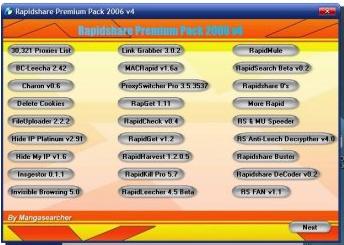Warez Leecher Names Of Angels
When Megaupload (and some other sharehosters) died, quite a lot of interesting things just disappeared from the net. I'm talking about things like small tools that were shared on e.g. Xda-developers before Github came, about fan-mods for games etc. The 'big' ones continued living, but if you now e.g.
Jul 13, 2016 - 06 Little Angel_[plixid.com].mp3, 9.45 MB. 07 Wat Tyler_[plixid.com].mp3. Torrent name, size, files, age, seed, leech. Sep 12th, 2018 10 Popular Sites Like Projectw Our team has explored the net and came across several outstanding warez and forum sites like Projectw.
Search for a special kernel/ROM for your G1/ADP1 you are mostly out of luck. It's sad that there's basically no way for an organisation like archive.org to archive things from sharehosters given the unclear (or quite clearly black/gray) law situation and also the missing cooperation with the sharehosters themselves. It's the same with things like game trainers, save editors, etc. Sign up and give your e-mail address to this forum so that you can see the download link for this file. Which is an outdated version. The new version is in another forum thread on a separate forum, but you have to register to see links.
The link is to a rapidshare download page, which rest assured is totally legit. I honestly don't understand why more people don't create Github accounts and use that to distribute, or at least use their ISP's free web space.
Most of these tools have names, are well-known, and are the top hit on Google, but none of them have an actual website that you can go to to see if they've released new versions, something for other games, etc. It's all very sketch. Trainers, save editors, translations are basically a common entry point into programming, like a closed knit group of people that love video games and who wants to modify/hack/translate their favourites games. At some point, programming comes to the table and people will start sharing knowledge about it with their own way of doing things. A popular project will get hosted somewhere and the following projects will get hosted there too, simply because they're learning by looking at the popular one. Rapidshare, megauploads, all of these are tools people know before getting into programming, so they just use it.

Github is something that comes later, if things get serious. Dwarf fortress stuff is like that, Minecraft is even worse, you get adfly in the middle:D. This is something that has always sketched me out about the Android rooting and moding scene. 'Download this suspect binary from rapid share and run it as root' seemed to be a cornerstone of it.
The warez/cracks scene was essentially the same thing, and yet if you knew where you were getting things from, it was quite safe. The antipiracy groups have since been spreading plenty of FUD (and some possibly attaching malware to releases, I don't know) and working with the AV/security industry to make you believe otherwise, however. Just as a warez/cracks group would be called out for it and very publicly shamed if they put malware in their releases, the same would happen in the Android scene.
It's true that there are many rather clueless users (known as 'leechers' in the vernacular), but there are also many knowledgeable ones and all it takes is one to give sufficient evidence of malice to trigger the 'immune reaction'. But it's even worse than that. People run random operating systems on devices they carry 24/7. Devices with microphones, multiple cameras, access to personal and work email, text messages, passwords, your location. And there are so many places for things to wrong. Any one of the following could be malicious, incompetent, or compromised: * The ROM's maintainer.
There are many groups here, for example many ROMs are based on ParanoidAndroid, which is based on Cyanogenmod, which is based on AOSP. * The device maintainer. Download lagu di sini sendiri hauh darimu tanpamu kurasakan mati. Typically each brand/model device has its own volunteers to maintain any proprietary blobs or special upgrade process * The hackers who provide special binaries that root each device, unlock the bootloader, etc.
* The added packages you typically get separately from the ROM, for example Google Apps. * The build machine, typically just some random box donated semi-anonymously by someone * The web hosting (without TLS, of course) provided by some other random person. I love Android. I compile and run my own ROM.
- пятница 21 декабря
- 58